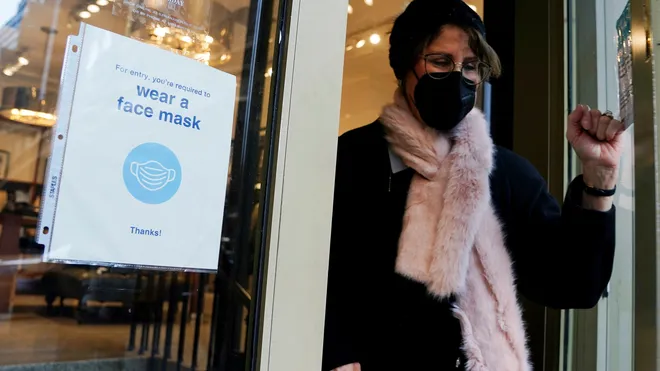On Wednesday, Nassau County, New York, introduced a groundbreaking piece of legislation—the first face mask ban in the country following the COVID-19 pandemic. This new law, known as the Mask Transparency Act, criminalizes the wearing of masks or face coverings that conceal one’s identity, except for health or religious reasons. Violations of this law are classified as a misdemeanor, carrying penalties of up to one year in jail and fines reaching $1,000.

Context and Controversy
The Mask Transparency Act follows a period of increasing scrutiny on mask-wearing, particularly in public demonstrations. Two months prior, New York Governor Kathy Hochul had hinted at a possible mask ban for subway riders after an incident where masked individuals reportedly took over a subway car, disturbing passengers with extremist rhetoric. Hochul emphasized the need to prevent individuals from using masks to evade responsibility for criminal or threatening behavior.
The new law has faced significant criticism. The New York Civil Liberties Union (NYCLU) condemned the ban, accusing Nassau County officials of prioritizing a “culture war” over the rights and safety of residents. Susan Gottehrer, NYCLU’s Nassau County Regional Director, argued that the ban undermines the ability of people to express their views and could lead to increased doxxing and unwarranted arrests. Additionally, Gottehrer pointed out that masks remain crucial for public health, particularly with rising COVID-19 cases, and help individuals at higher risk participate safely in public life.
Further criticism came from New York State Senator Iwen Chu, who expressed concern that the ban might incite anti-Asian sentiment. Chu noted that mask-wearing is a common practice in many Asian cultures and could lead to increased discrimination.
Historical and Regional Context
The new legislation echoes historical precedents where mask bans were used to curb the anonymity of protestors. In the mid-20th century, mask bans were implemented to target members of the Ku Klux Klan, who used masks to hide their identities during violent activities. More recently, mask restrictions have been revisited as a response to heightened security concerns during protests. For example, North Carolina enacted a mask restriction in June allowing medical masks but giving law enforcement and property owners the authority to request mask removal for identity verification and to increase penalties for crimes committed while masked.

The Nassau County ban is part of a broader trend where officials are revisiting and revising mask laws in response to modern-day challenges, including public safety and political unrest. As protests continue and mask-wearing evolves, such legislative actions highlight the ongoing debate over public safety, civil liberties, and cultural practices.
